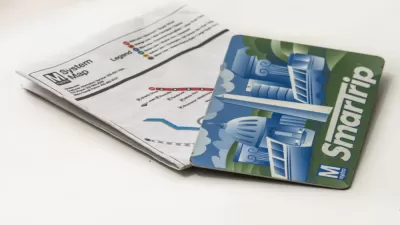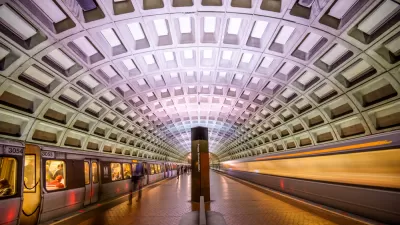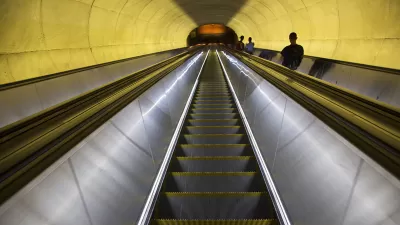D.C. Metro is considering a new "Rush-Hour Promise"—if you're train is running 15 minutes later or more, your fare will be refunded.
According to Faiz Siddiqui, WMATA's new "Rush-Hour Promise" program "would provide full refund credits to peak-period rail and Metrobus riders who encounter delays of 15 minutes or more. The thinking behind the program is that "customers who are more likely than others to reduce their ridership or abandon Metro entirely..."
The other message inherent in the new program: confidence that the system won't be delayed very often. Still, "Metro estimates the refund program, which will run for the 2018 calendar year, will cost between $2 million and $3.5 million."
FULL STORY: In unprecedented move, Metro seeks to provide refunds for trips delayed 15 minutes or more

Planetizen Federal Action Tracker
A weekly monitor of how Trump’s orders and actions are impacting planners and planning in America.

Maui's Vacation Rental Debate Turns Ugly
Verbal attacks, misinformation campaigns and fistfights plague a high-stakes debate to convert thousands of vacation rentals into long-term housing.

Restaurant Patios Were a Pandemic Win — Why Were They so Hard to Keep?
Social distancing requirements and changes in travel patterns prompted cities to pilot new uses for street and sidewalk space. Then it got complicated.

In California Battle of Housing vs. Environment, Housing Just Won
A new state law significantly limits the power of CEQA, an environmental review law that served as a powerful tool for blocking new development.

Boulder Eliminates Parking Minimums Citywide
Officials estimate the cost of building a single underground parking space at up to $100,000.

Orange County, Florida Adopts Largest US “Sprawl Repair” Code
The ‘Orange Code’ seeks to rectify decades of sprawl-inducing, car-oriented development.
Urban Design for Planners 1: Software Tools
This six-course series explores essential urban design concepts using open source software and equips planners with the tools they need to participate fully in the urban design process.
Planning for Universal Design
Learn the tools for implementing Universal Design in planning regulations.
Heyer Gruel & Associates PA
JM Goldson LLC
Custer County Colorado
City of Camden Redevelopment Agency
City of Astoria
Transportation Research & Education Center (TREC) at Portland State University
Jefferson Parish Government
Camden Redevelopment Agency
City of Claremont





























